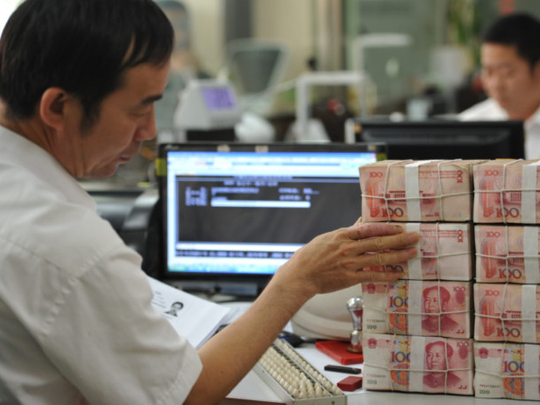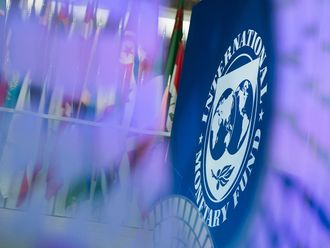
The yuan renminbi, which last Monday traded at a rate of 1.67 to a dirham, is poised to join the US dollar and euro as one of the world’s top three global trading currencies.
The Chinese government has been promoting the international use of its currency in three stages through trade, investment and as a reserve currency over the past years. As for relations with the UAE, the first such step was made through a currency swap deal early last year worth $5.5 billion (about Dh20.2 billion), which, according to the Chinese central bank, aims at “strengthening bilateral financial cooperation, promoting trade and investments and jointly safeguarding regional financial stability”.
At the moment, the renminbi is not fully convertible as its process of internationalisation has just begun. In the meantime, the Chinese government has been promoting an offshore market for the use of the currency outside the Chinese mainland — and not for those who have businesses in China itself, let alone for residents.
Even cross-border payments in renminbi using international credit cards such as MasterCard or Visa have been banned recently by the Chinese central bank.
Offshore renminbi markets have since been developing rapidly in London, Singapore, Hong Kong and Taiwan, and there is reason to believe that the UAE will join the pack. The so-called offshore renminbi can be used for cross-border trade, finance and direct investment from outside China.
“The offshore renminbi has a great advantage versus the mainland renminbi,” Benjamin Tan, Customer Relations Manager at Citibank’s International Private Bank, tells GN Focus.
“The offshore currency is driven by the markets, not depending on decisions and regulations by the Chinese central bank, which are sometimes opaque and hard to analyse due to a lack of transparent data.”
Adding to this positive sentiment is the fact that offshore renminbi bonds and notes issued by Singapore banks such as DBS or UOB earlier this month have been rated AA- by Fitch, which is top investment level.
For the UAE, this situation comes right on cue. With its development into the top group of trading currencies, the renminbi supports the soaring trade between the UAE and China, especially since China is about to replace India as the UAE’s biggest trade partner. Bilateral trade between China and the UAE increased fivefold over the past ten years to touch $15.6 billion dollars in 2012, according to figures by the UAE Ministry of Foreign Trade.
UAE bank offerings
In the UAE, main banks such as HSBC, Standard Chartered and Emirates NBD are now offering renminbi accounts, while a number of Chinese banks have opened branches, not least to serve around 3,000 Chinese firms that operate in the UAE.
“Our market research indicates that this was the opportune time to introduce renminbi currency-denominated liabilities products, as these enable Emirates NBD to assist China-affiliated traders and individuals to manage their requirements and better leverage emerging market opportunities,” Suvo Sarkar, General Manager — Retail Banking, Emirates NBD, said.
Emirates NBD’s renminbi account offering in February this year, which entails a current account and fixed deposit accounts, closely followed the opening of a representative office of the bank in Beijing.
New frontiers
What China kicked off is “irreversible”, said Stephen King, HSBC’s group Chief Economist and the bank’s global head of economics and asset allocation research, at a client conference of the bank in Dubai in April.
“We expect that China’s currency will become a fully convertible currency in five years,” he said.












